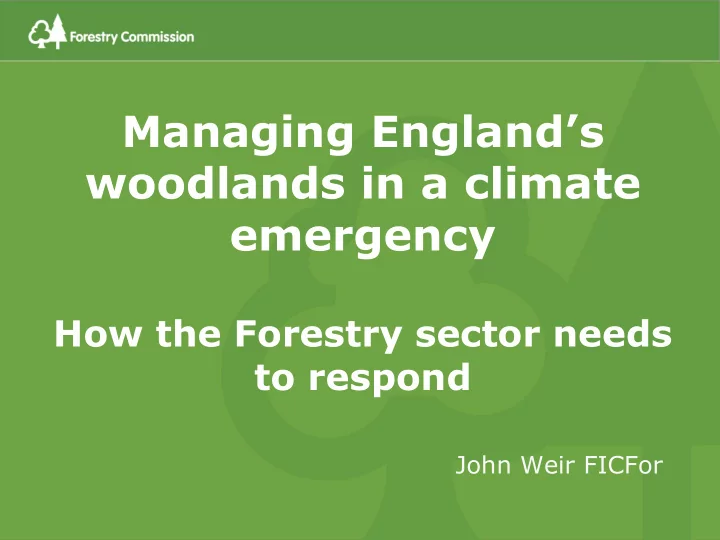

Managing England’s woodlands in a climate emergency How the Forestry sector needs to respond John Weir FICFor
Limited Species 2
Species selection help 3
4
Pests and diseases Xylella, Long horn beetles, Spruce bark beetles, Pine processionary moth, Birch borer, Pine nematode, etc, etc. Ips typographus Spruce Elm zigzag sawfly Xylella 5
Biosecurity 6
Increasing mammal pressure 7
Could we? Dare we? 8
And then Climate Change 9
The speed of climate change The speed of this change in climate is unprecedented since at least the last ice age and is probably greater than the rate our woodlands can adapt without human action if we wish to retain the ecosystem services they currently provide us with . 10
Climate Matching Thinking outside the pot 11
Climate Matching Current Thinking outside the pot 12
Climate Matching Mid Century HadCM3 A1B 2050 Thinking outside the pot 13
Native distribution of oak 14
Genetics within species 15
With our past history is the tree native and local? 16
Climate Matching End of Century HadCM3 A1B 2080 Thinking outside the pot 17
The UKFS 18
2019 Position Statement 19
www.gov.uk/government/publications/managing- englands-woodlands-in-a-climate-emergency 20
Forest Industry Action 21
Thanks for listening john.weir@forestrycommission.gov.uk @johnweirfc 22
Recommend
More recommend